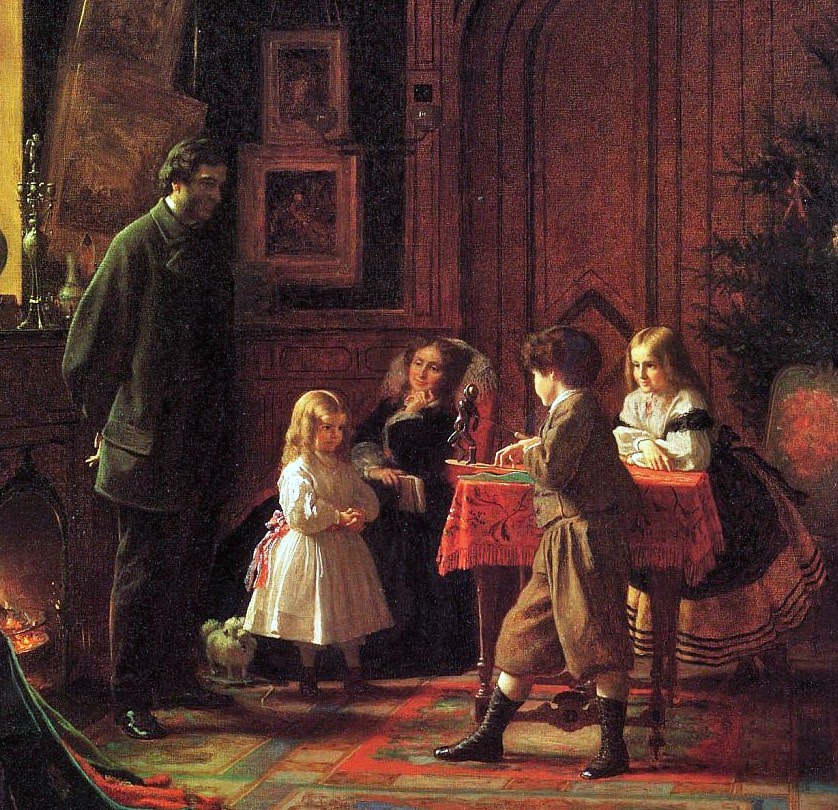Tuesday
Released from Covid restrictions, Julia and I have been traveling and have finally, for the first time in over 18 months, physically hugged grandchildren Esmé, Etta, Eden and Ocean (in Buford, Georgia) and Alban (in Washington, D.C). I hadn’t realized how hungry my arms were for the touch. In the past I’ve cited Henry Wadsworth Longfellow’s “The Children’s Hour” to celebrate such moments and turn again to the poem today, even though parts of it are a little creepy.
That’s because the devouring love Longfellow describes overwhelms individual self. The poet’s children first devour him and then he devours them in return. The reference to the wicked Bishop of Bingen, whom legend has it set fire to starving peasants and then was himself devoured by rats, was the subject of a Robert Southey poem https://www.poetryfoundation.org/poems/45179/gods-judgment-on-a-wicked-bishop. The rats, as avatars of divine justice, sniff out where the bishop has locked himself into his castle with his hoarded grain. His cat’s screaming signals that his supposedly impregnable fortress offers inadequate protection:
He listen’d and look’d;… it was only the Cat;
And the Bishop he grew more fearful for that,
For she sat screaming, mad with fear
At the Army of Rats that were drawing near.
For they have swum over the river so deep,
And they have climb’d the shores so steep,
And up the Tower their way is bent,
To do the work for which they were sent.
They are not to be told by the dozen or score,
By thousands they come, and by myriads and more,
Such numbers had never been heard of before,
Such a judgement had never been witness’d of yore.
Down on his knees the Bishop fell,
And faster and faster his beads did he tell,
As louder and louder drawing near
The gnawing of their teeth he could hear.
And in at the windows and in at the door,
And through the walls helter-skelter they pour,
And down from the ceiling and up through the floor,
From the right and the left, from behind and before,
From within and without, from above and below,
And all at once to the Bishop they go.
They have whetted their teeth against the stones,
And now they pick the Bishop’s bones:
They gnaw’d the flesh from every limb,
For they were sent to do judgement on him!
In Longfellow’s poem, the children are the rats, which would make the father the imprisoning bishop:
Between the dark and the daylight,
When the night is beginning to lower,
Comes a pause in the day’s occupations,
That is known as the Children’s Hour.
I hear in the chamber above me
The patter of little feet,
The sound of a door that is opened,
And voices soft and sweet.
From my study I see in the lamplight,
Descending the broad hall stair,
Grave Alice, and laughing Allegra,
And Edith with golden hair.
A whisper, and then a silence:
Yet I know by their merry eyes
They are plotting and planning together
To take me by surprise.
A sudden rush from the stairway,
A sudden raid from the hall!
By three doors left unguarded
They enter my castle wall!
They climb up into my turret
O’er the arms and back of my chair;
If I try to escape, they surround me;
They seem to be everywhere.
They almost devour me with kisses,
Their arms about me entwine,
Till I think of the Bishop of Bingen
In his Mouse-Tower on the Rhine!
Do you think, O blue-eyed banditti,
Because you have scaled the wall,
Such an old mustache as I am
Is not a match for you all!
I have you fast in my fortress,
And will not let you depart,
But put you down into the dungeon
In the round-tower of my heart.
And there will I keep you forever,
Yes, forever and a day,
Till the walls shall crumble to ruin,
And molder in dust away!
I can’t be overly critical of devouring love because, as I said, my own arms felt hungry for my grandchildren, and we hugged each other tightly for a long time when we met. The love felt so fierce, almost desperate, that devouring seems the right metaphor. In the moment, one wants to banish all separation. I felt caught up in a round-tower of arms.
Immediately afterwards, however, we all returned to our autonomous selves. There’s something wrong in a relationship where you don’t celebrate the loved one’s independence, keeping him or her imprisoned in a dependency dungeon. Hopefully the father in the poem does not, in the subsequent months and years, attempt to keep his daughters young and innocent rather than allowing them to become rebellious teenagers and self-reliant women. Hopefully he is not overly reliant on prepubescent daughters to save him from the night that is “beginning to lower.” The clock must turn on the children’s hour.
Maybe I’m overly concerned, with Longfellow doing more than finding images to capture how fierce and enduring his love is, guaranteed to last until he molders in dust away. In my own case, I know the love will endure. My love for my grandchildren’s fathers, one of whom will turn 40 next year, has only increased with time. I am in awe at how Darien and Toby have grown into adults and parents and husbands. I am in awe of their wonderful wives. Children are very nice, but grown-ups have a depth of soul that leaves me breathless.
All of which is to say that there should be a children’s hour, an adolescents’ hour, a young adults’ hour, a young parents’ hour, a midlife hour, etc. If Longfellow accedes to this, I have no problem with the particular stage he has chosen to celebrate in this poem.
